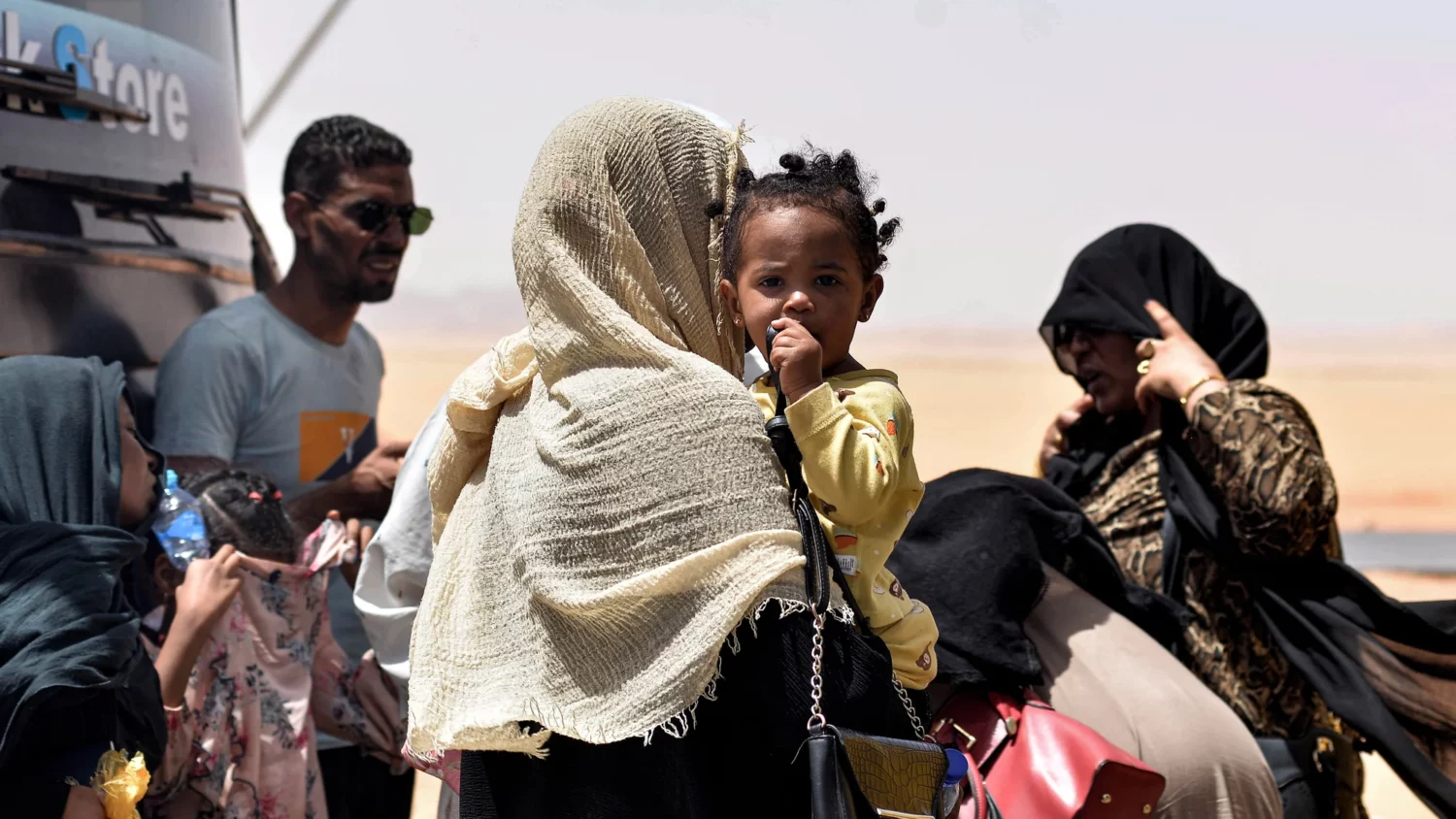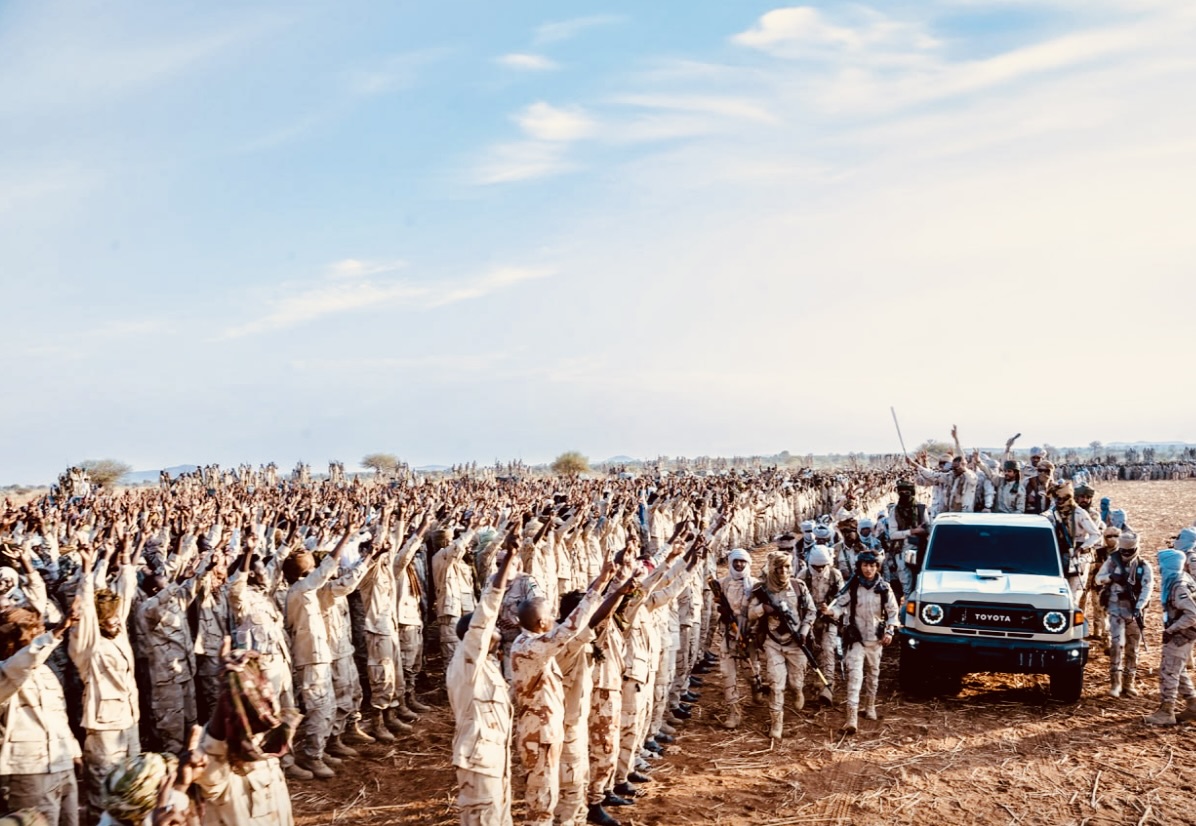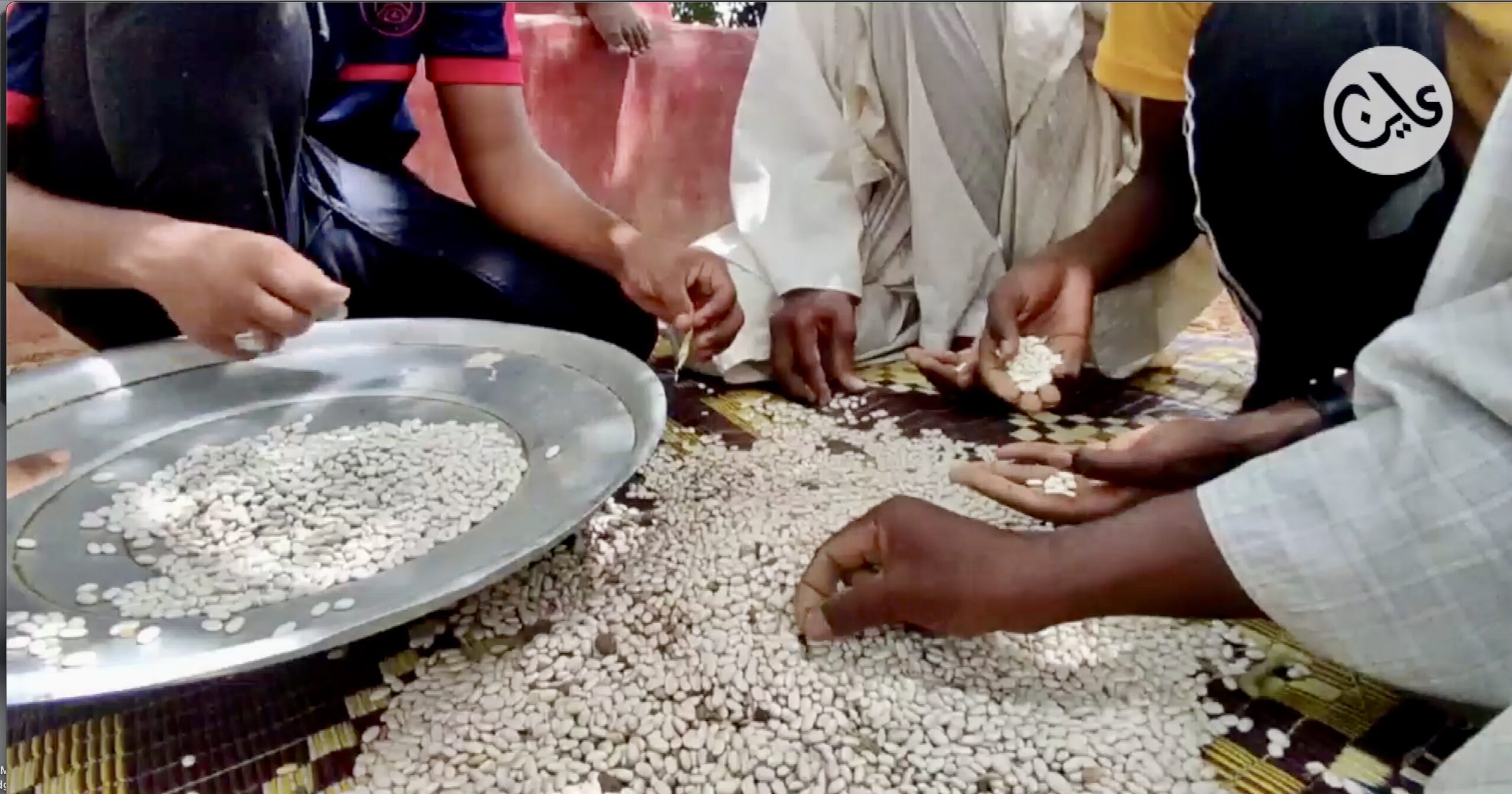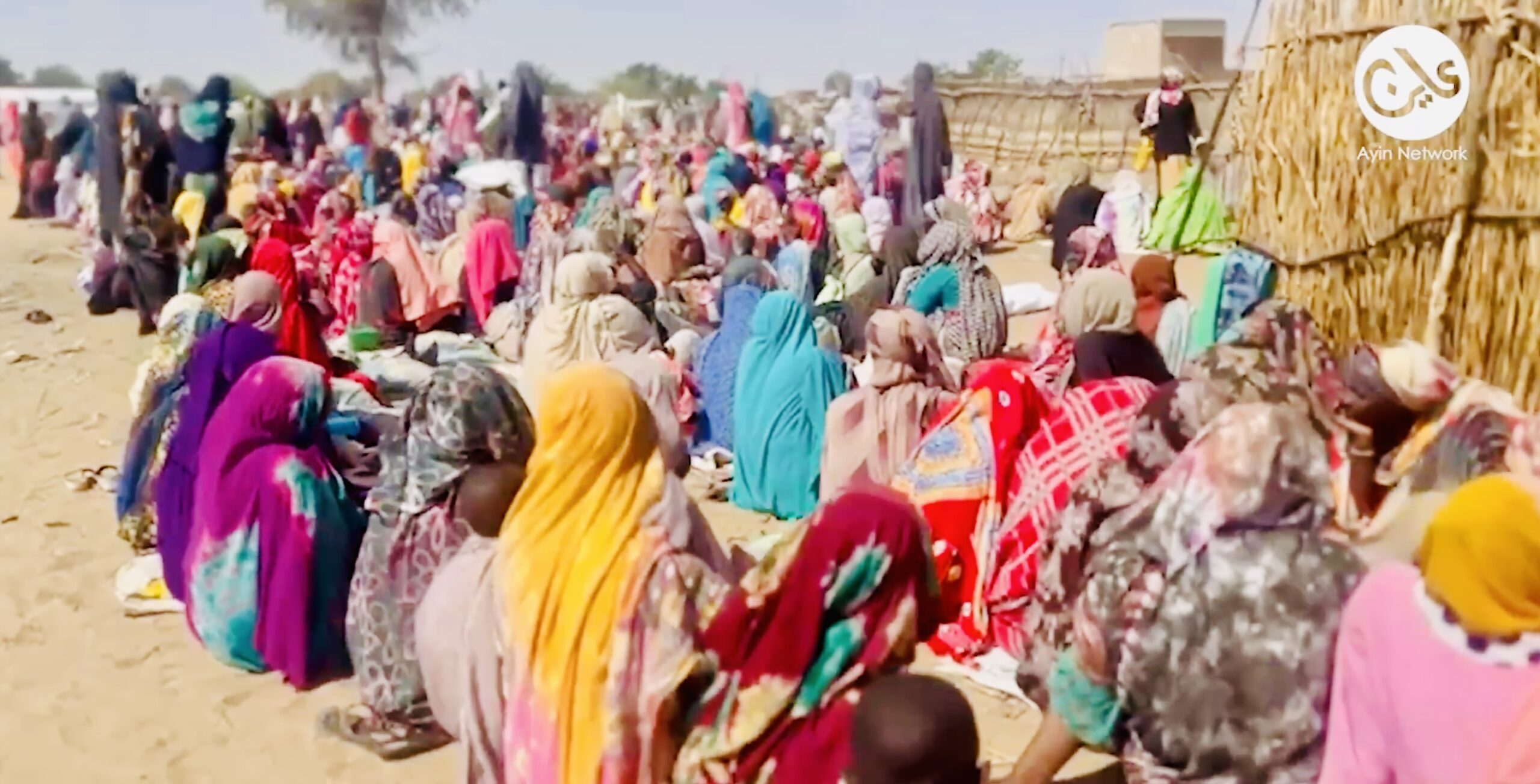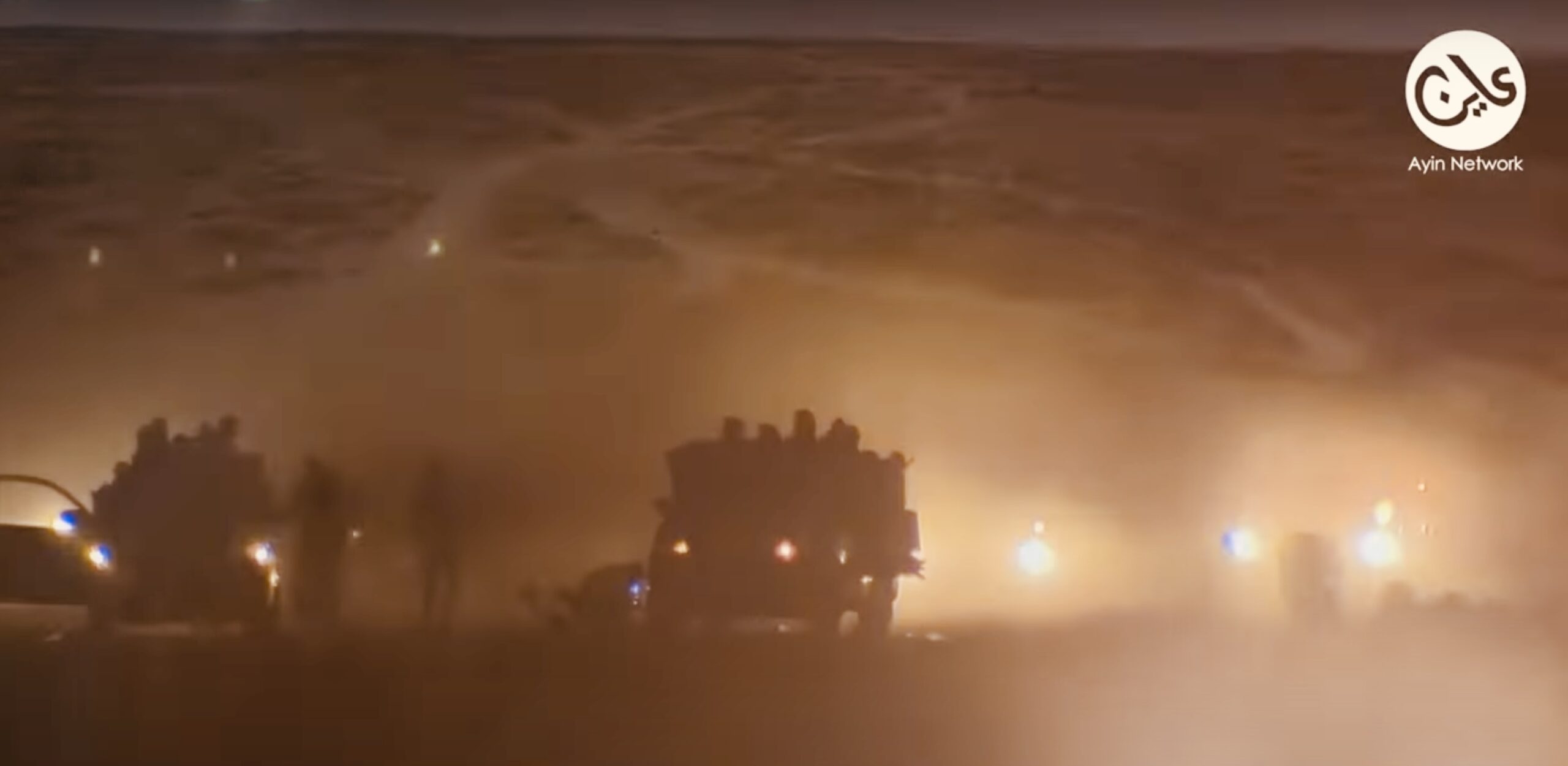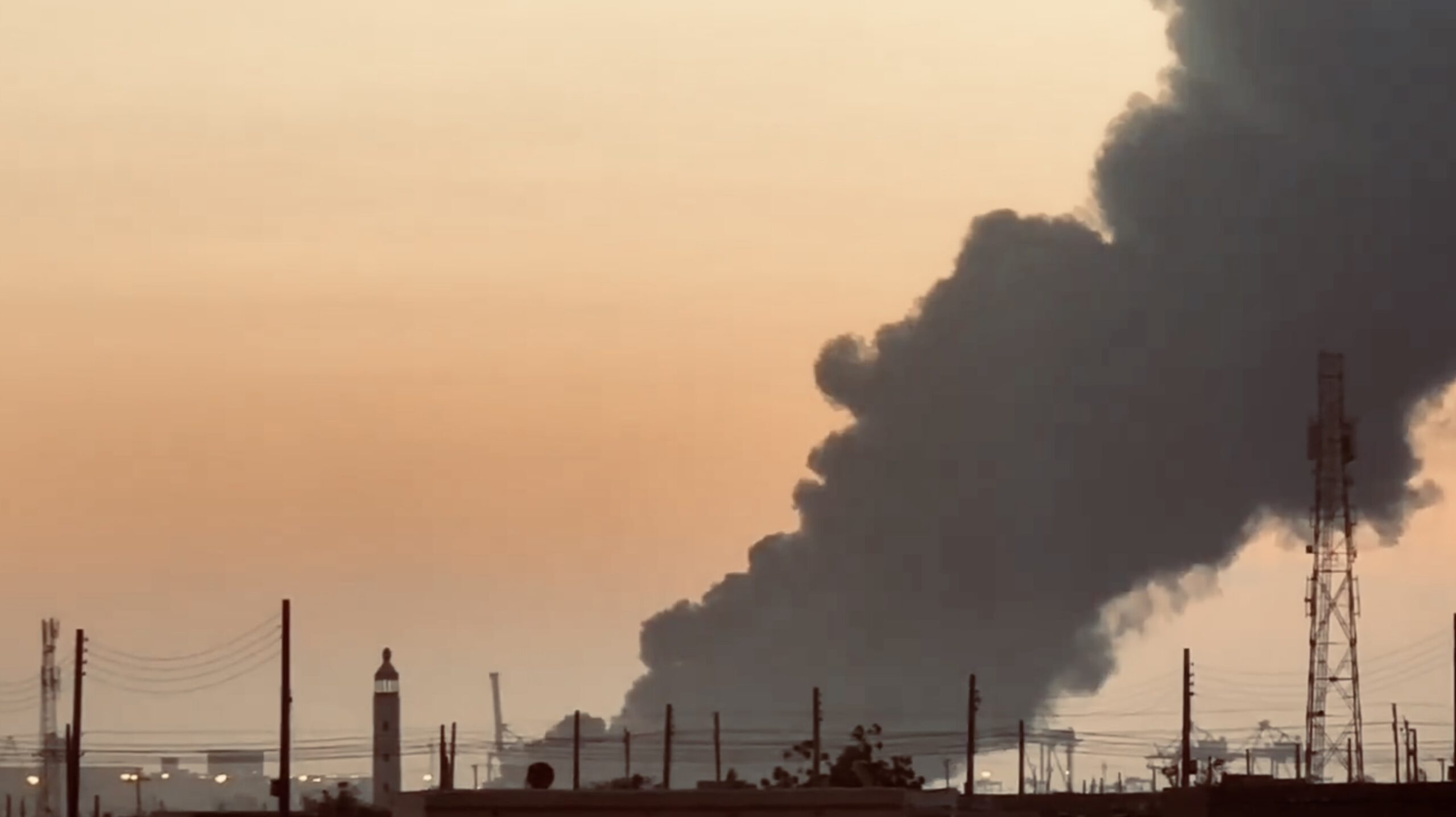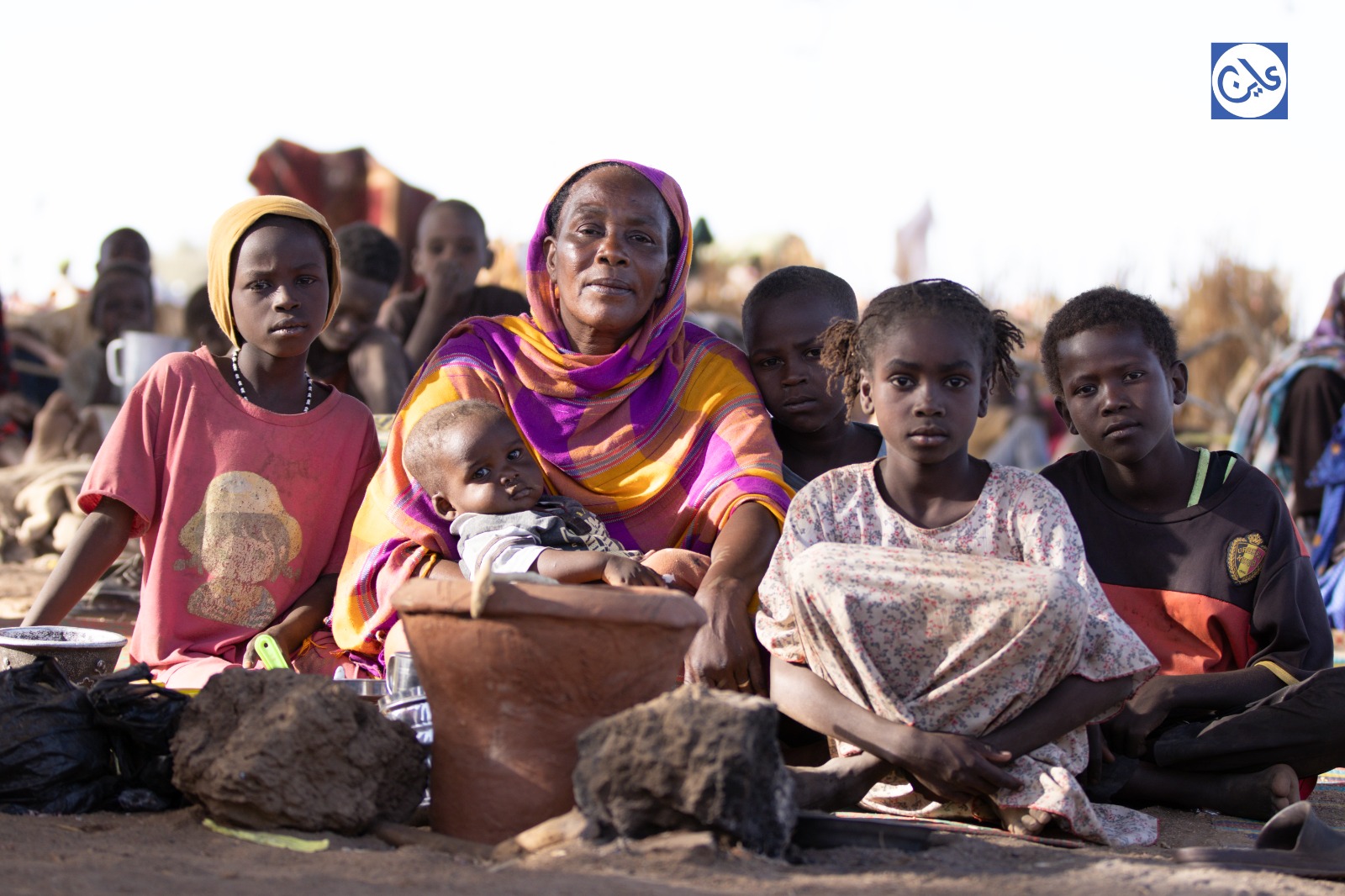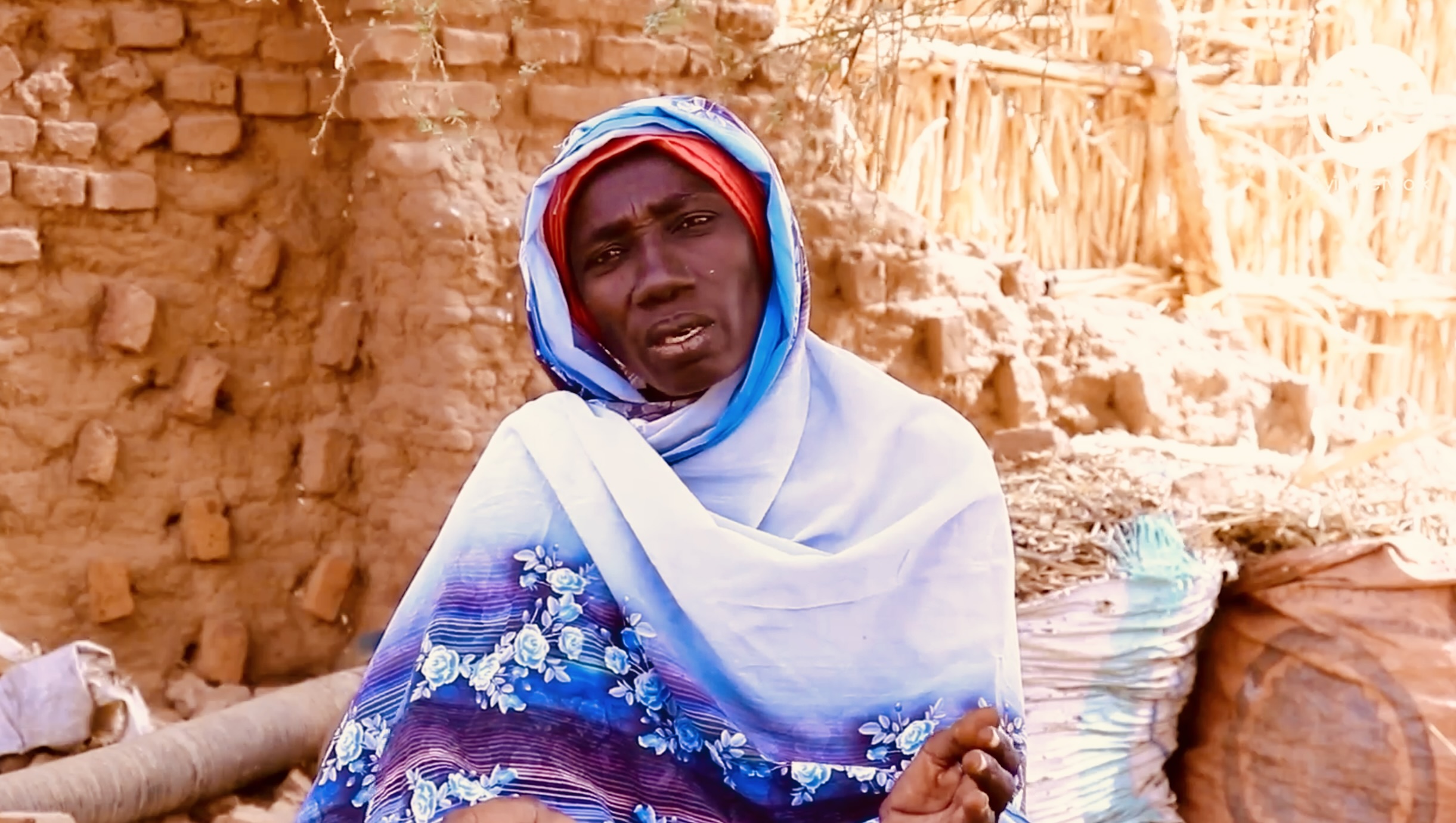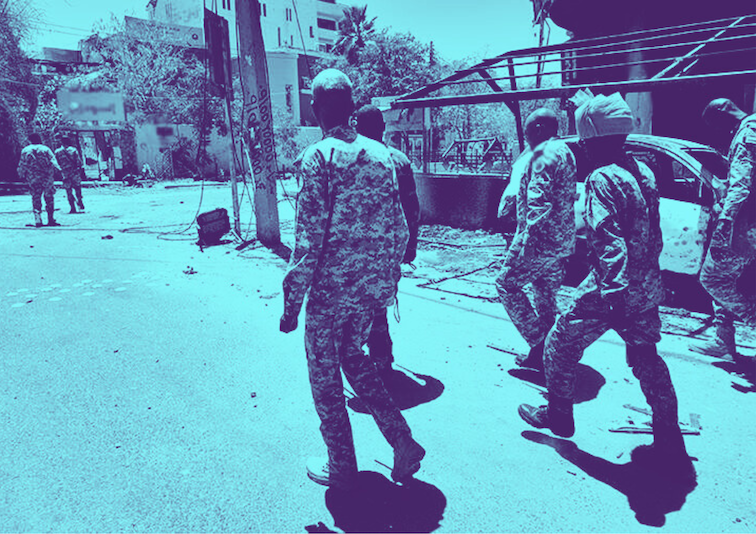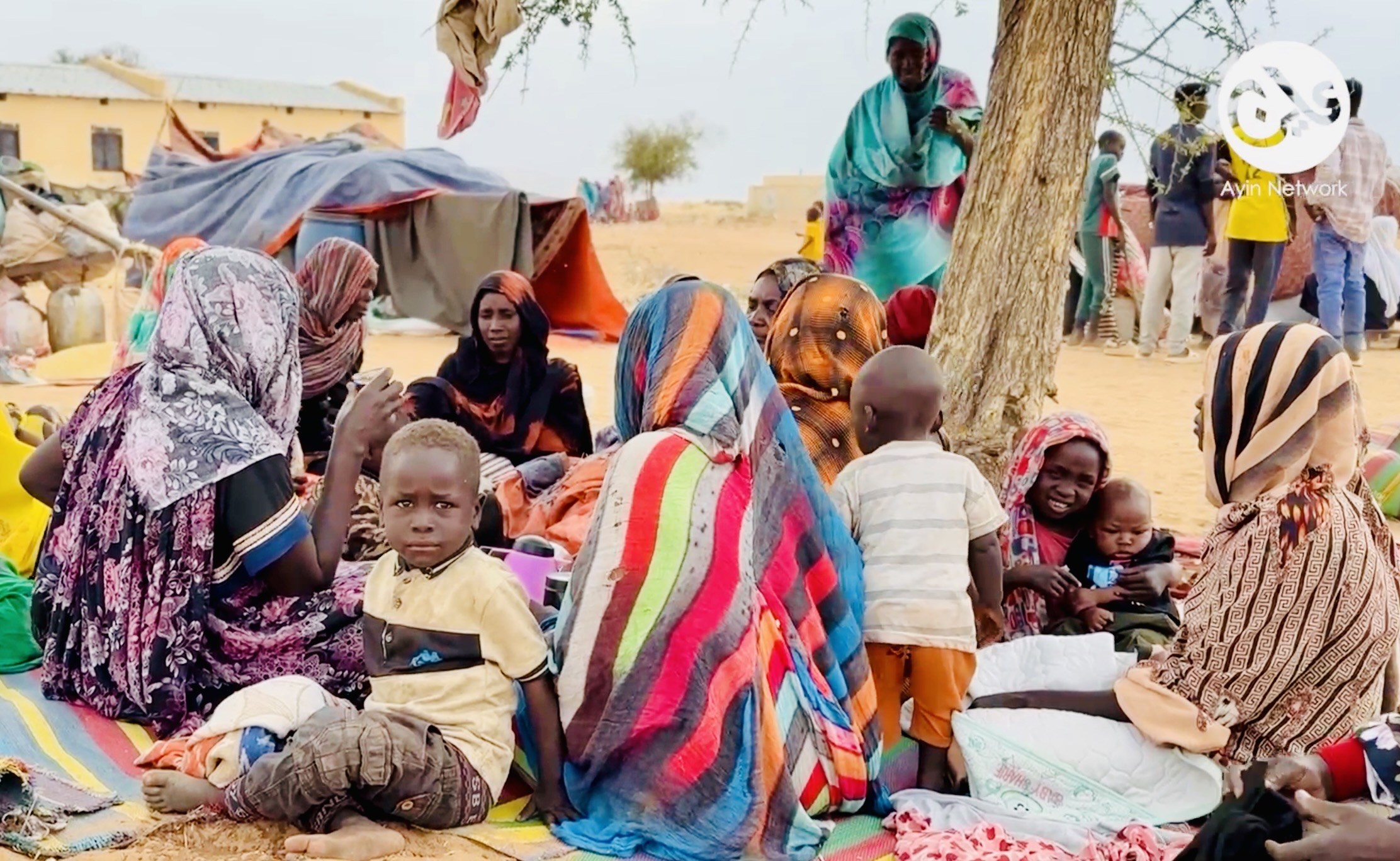Stuck at the border: Visa restrictions continue to plague Sudanese attempting to enter Egypt
23 September 2023
Ruba Ahmed, a young lady who used to live in the restive capital Khartoum until the war broke out in mid-April, had two goals: find a car to escape the conflict and ensure her ailing father receives treatment in neighbouring Egypt. Like millions of others who have fled the capital, it was a harrowing journey. Her father, 76 years old, had Alzheimer’s disease and was struggling to breathe amidst the conflict-driven debris found in Khartoum. Ruba took three days, passing through seemingly infinite security checkpoints to the eastern states of Sudan, then finally to the Sudan-Egyptian border area, Argin, in Northern State.
But when Ruba and her ailing father finally reached Argin, they witnessed another, Kafkaesque form of hell. Raba saw sprawling lines of people waiting to seek entry into Egypt, desperate queues of children, women, and elderly standing in the relentless sun with high temperatures reaching 40 degrees Celsius (104 degrees Fahrenheit). In mid-August, a woman stranded at nearby Wadi Halfa Hospital died after fainting in the visa queue in front of the Egyptian Consulate.
After 10 June, Egypt officials changed their once progressive visa policies towards Sudan, forcing Sudanese to seek visas and security clearance to acquire entry. According to Sudanese citizens at the border, obtaining a visa takes many weeks after registering lists of people wishing to enter Egypt. Sudanese and Egyptian authorities were caught woefully unprepared to handle the influx of Sudanese fleeing the war –all trying to enter Egypt amidst the new entry restrictions.
Those seeking entry struggle with acute shortages of water and food, not to mention finances since many are compelled to spend on accommodation along the border while contending with Egypt’s new bureaucratic hurdles. Ruba saw hundreds of Sudanese lying on the ground – some paying 1,000 Sudanese Pounds to rest in small beds woven from strings – a price that doubled in a matter of days due to the high demand.
Ruba spent three days trying to get a visa to enter Egypt and access the treatment her father desperately needed. “I stayed for days at the border crossing, hoping that the travel document that I owned would be valid for entry, but my father died at dawn on the third day”, she told Ayin. “The life I knew ended forever after my father died in the early hours of the first day of June, I am left without a family,” she said, adding that paperwork and new restrictions made by distant Sudanese and Egyptian officials had killed her father.
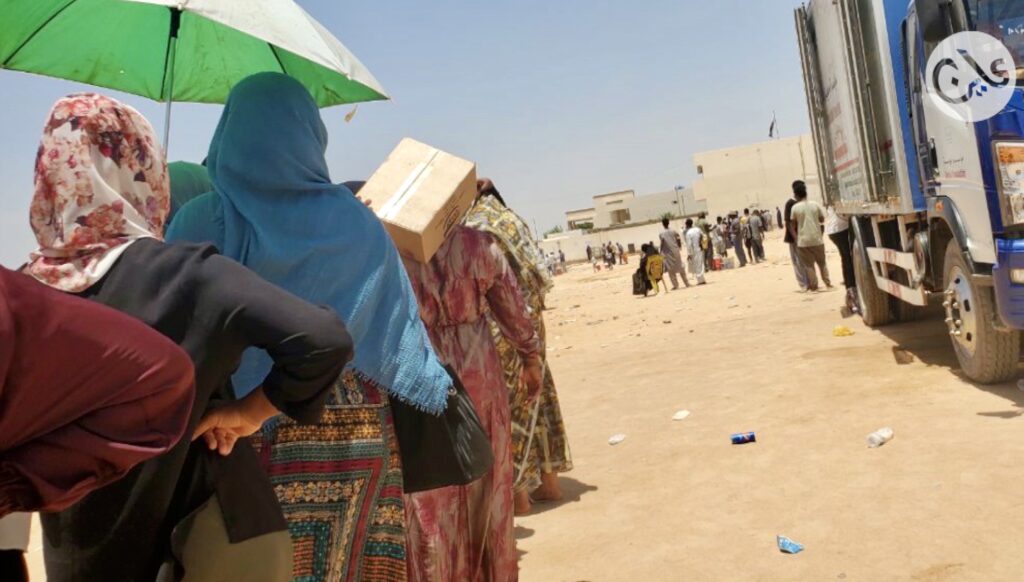
Around the time of Ruba’s father’s death, a woman in her fifties passed away, just steps from the Egyptian border. She was suffering from kidney failure and was left without a dialysis session for days, local citizens told Ayin. The same sources recounted how her husband had tried in vain the day before to desperately break through the lines at the border crossing, much to the consternation of others in the queue, trying to explain that his wife desperately needed access to treatment in Egypt.
Since the conflict erupted, over a million people have fled the country, with roughly 30% crossing the Egyptian border. The former Four Freedoms agreement signed between Sudan and Egypt provided citizens from either country to freely cross the border to live and work in either location. By 10 June, however, Egyptian authorities froze the most prominent provisions of the Agreement and abolished entry visas for children, women, and men over 50 years old, citing unnamed security concerns. “They do a security check for all the people coming to Egypt, and it is their right to do so, if security was the real issue, they can stop anyone that they suspect to be problematic from entering the country,” says Arwa Saber, a lawyer, and human rights advocate who opposes the decision. “It makes no sense to put obstacles that were not previously there under these extraordinary conditions.”
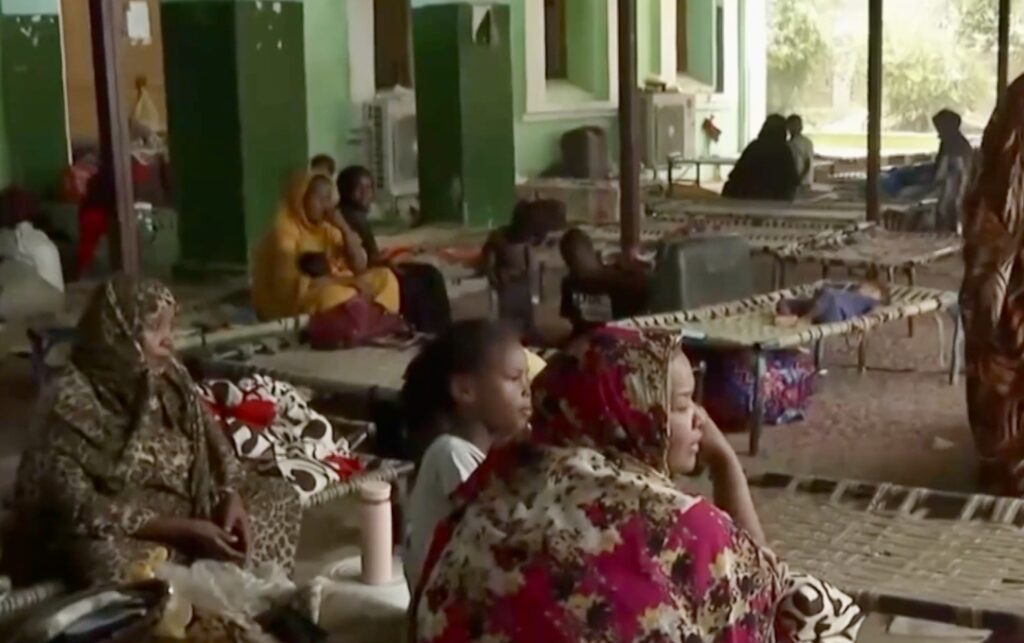
Port Sudan
Aware of the arduous procedures to acquire a visa at the Egyptian border, some Sudanese have tried their luck at the Egyptian consulate in Port Sudan. However, according to several sources in the eastern port city, the application procedure can be just as taxing. “Lots of people are coming to the consulate to get visas, and with the tough weather in Port Sudan, they are struggling while waiting for the process,” says Mohammed Ali*, who managed to get his visa for Egypt recently from the consulate in Port Sudan. “I witnessed people passing out from the heat – there are a lot of applicants – but the consulate only issues ten passports per day.” Thousands of Sudanese are trying to get visas in Port Sudan, Mohammed Ali told Ayin, and many give up in frustration. “The employees and the police at the consulate treat people very badly and the process is extremely slow,” he added, “sometimes they would issue visas but hold the passports without a reason. I went through this type of delay; I received my passport ten days after obtaining the visa.”
In late August, authorities set up a new passport office in Port Sudan. Now hundreds also wait in these sweltering lines to either acquire new passports or renew expired ones, local sources told Ayin. Applicants believe it may take weeks, if not months, before they are able to acquire a passport. Authorities have also increased the price of passports to 120,000 Sudanese pounds (roughly $200) –which was the average monthly salary in Khartoum before the war.
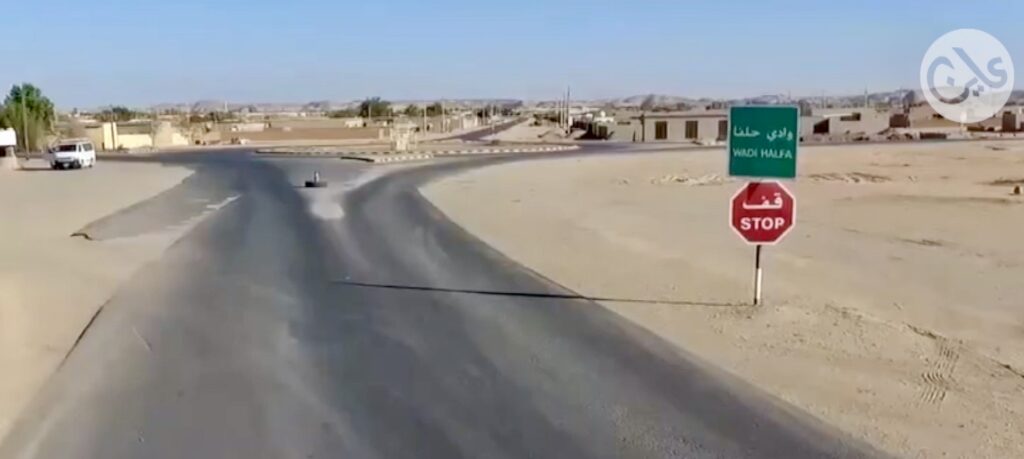
Death at the border
The fact that many Sudanese remain stuck at the Egyptian border area places them at considerable health risks, Saber told Ayin. Due to the entry challenges and security issues, many cannot enter Egypt or return to their homes in Sudan. “Kicking people out of the Egyptian border facilities is unreasonable –there are children and elderly among them.” The area has no water, or toilets, and remains infested with scorpions, Saber told Ayin. “I was in touch with a group of people [where] two of the ladies in the group were bitten by scorpions and had to be rescued by the Red Cross.”
Around 80 Sudanese stranded at the border had died within the first four months of conflict, says Adi Muhammed, a member of the Wadi Halfa Emergency Response Room –a youth-driven community support initiative. Adi Muhammed explained that most of the deaths are linked to patients who intended to travel to Egypt for medical treatment but experienced delays at the border. He pointed out that the hospital in Wadi Halfa cannot provide full medical care to patients.
According to a doctor at a clinic on the Sudanese border, their capacity is limited and does not meet the needs of several patients stranded at the border. “There are no clear measures for transferring urgent cases to the Egyptian side,” the same source said, “which receives patients according to its own evaluations and not according to recommendations made by the Sudanese side.”
The Preliminary Committee of the Sudan Doctors Union reported that the two clinics along the Egyptian border in Argin and Ashkit are working under great pressure due to overcrowding. The Union stated that the two clinics collectively receive an average of 120 patients per day, amidst a shortage of ambulances and other medical equipment.
Not all deaths are taking place on Sudan’s side, says human rights activist Amira Mustafa. According to Amira, 20 Sudanese died in August after crossing over to Egypt –most of them struggled with health conditions while lacking food and enduring long trips on poorly ventilated buses. The activist told Ayin that eight bodies were buried in the Egyptian “Abu Simbel” area, while the other bodies were transported to the city of Aswan.
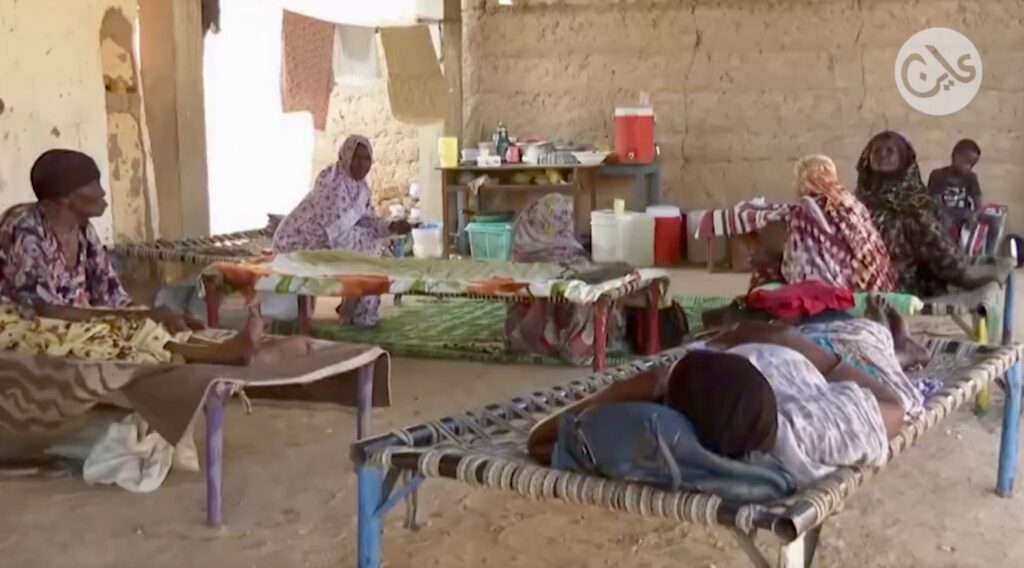
Community support
Residents and members of the emergency response rooms in the Wadi Halfa area have established 56 centres to house those displaced at the border –using public buildings, schools, mosques, etc. as temporary shelters, Adi Muhammed said. The emergency rooms in Wadi Halfa are trying to set up basic services to provide food, water, and sanitary toilets. “We suffer from several problems in the shelters, foremost of which are health problems since we lack medicines and medical services,” Adi said. “The actual capacity of the shelters ranges from 100 to 500 people, but the ongoing steady number of arrivals has led to cases of homelessness in the streets of the city.”
A group of 14 organisations run by Sudanese refugees and migrants in Egypt is also supporting the Sudanese who manage to enter Egypt. The organisation has been helping new arrivals find affordable housing and free shelter, along with other services such as psychosocial support and enrolling children in local schools.
With the war in its fifth month, the levels of Sudanese seeking entry into Egypt has slightly reduced since the beginning months of conflict, Saber said, but many Sudanese remain in limbo at the border. “I don’t know what to do,” says Moaz El-Tayib* while sitting on the ground near the lines of people seeking entry into Egypt. Moaz has waited for months to find out whether the Egyptian authorities will accept his passport which was recently extended through a written note by Sudanese authorities. “My family is in Cairo, and they are waiting for me,” he told Ayin. “If they [Egyptian authorities] reject my passport, I have nowhere to go –our home became a war zone, and I cannot go back.”




